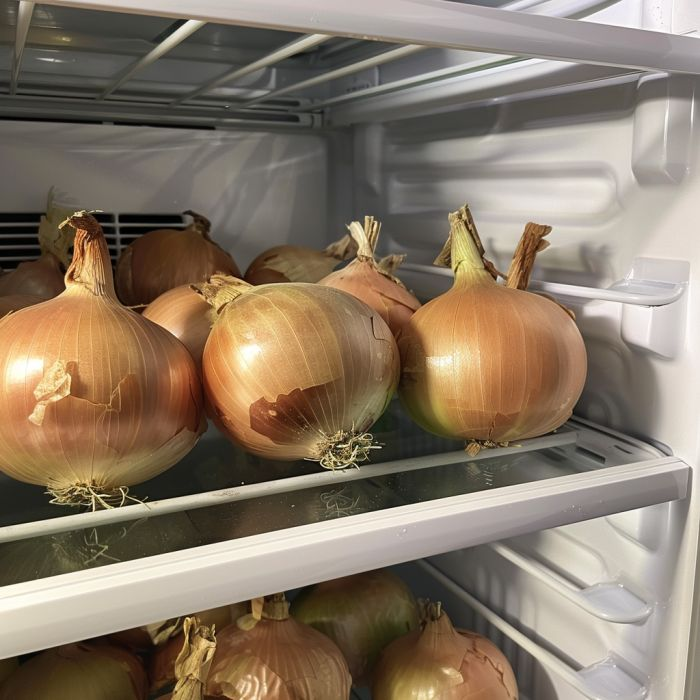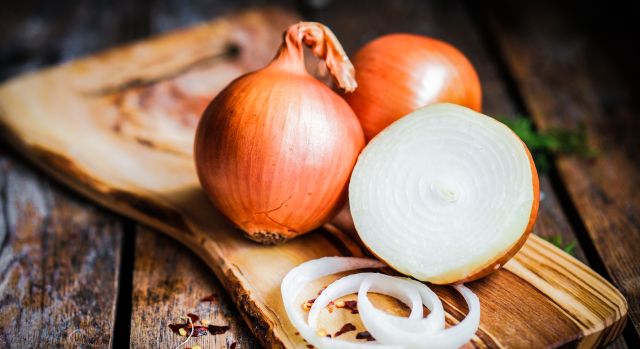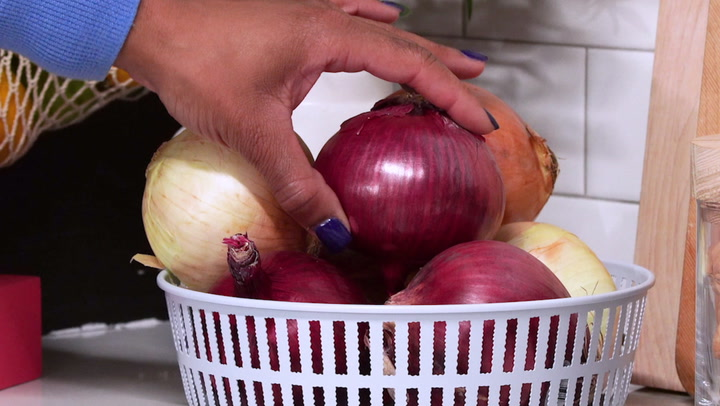The question of whether to refrigerate onions is a divisive one. Some cling to the practices handed down by their parents, like your hubby insisting on keeping onions in the fridge as his mother did. On the other hand, modern advice often warns against this, citing effects on flavor and texture. So, what’s the real story? Let’s explore this age-old debate to help you decide what works best for your kitchen and your culinary style.
Why Storing Onions Matters

Onions are a staple in almost every cuisine. They add depth, flavor, and aroma to dishes, but their storage plays a significant role in preserving their quality. Whether you refrigerate them or keep them in a pantry, the environment can impact their texture, flavor, and longevity. Here’s why storage is worth paying attention to:
- Flavor Preservation
Refrigeration can subtly alter an onion’s flavor, making it sweeter and less pungent. If you’re a fan of the sharp, eye-watering bite of a fresh onion, storing them in the fridge might not deliver the same result. - Texture Retention
Cold, humid conditions can soften onions over time, which isn’t ideal if you’re after a crisp texture for salads or raw preparations. - Avoiding Spoilage
Storing onions incorrectly, whether in the fridge or on the counter, can lead to faster spoilage, mold growth, or sprouting.
Understanding these nuances will help you strike the right balance between tradition and food science.
What Happens When You Refrigerate Onions?
Refrigerating onions seems like a logical step to prolong their freshness, but onions are more complex than they appear. Let’s break down what happens when they enter the cold zone:
- Starch Turns to Sugar
Refrigeration accelerates the conversion of starches into sugars, giving onions a sweeter flavor. While this might be a bonus for caramelized onions, it’s less desirable for savory dishes. - Humidity Issues
The moisture in the fridge can encourage mold and rot if onions aren’t stored in breathable containers. Wrapping them in plastic is a recipe for disaster. - Ethylene Gas Release
Onions release ethylene gas, which can speed up the spoilage of nearby fruits and vegetables. Storing them in the fridge without proper isolation could harm your other produce. - Loss of Pungency
The signature sharpness that onions bring to dishes diminishes over time in the fridge, leaving you with a less robust flavor profile.
Best Practices for Onion Storage
If you’re torn between refrigerating onions and sticking to countertop storage, here are some tips to get the best of both worlds.
- For Whole, Dry Onions
- Store them in a cool, dry, and dark place like a pantry or cellar.
- Use mesh bags or baskets to promote airflow and reduce moisture buildup.
- Keep them away from potatoes, which release moisture and gases that can speed up spoilage.
- For Spring Onions or Green Onions
- These varieties, with their higher water content, do better in the fridge. Store them in a glass of water with the roots submerged and tops covered loosely with a plastic bag for freshness.
- When Refrigeration Is Necessary
- If your kitchen runs hot or you need to store onions for an extended period, refrigerate them in a breathable container. A perforated paper bag works well.
- Cut or Peeled Onions
- Always refrigerate onions once they’ve been cut. Store them in an airtight container to prevent their odor from spreading to other foods in the fridge.
- Monitor Regularly
- Inspect your onions every week for signs of sprouting or rot and use them before they go bad.
Finding the Sweet Spot Between Tradition and Modern Science

So, what’s the verdict? Both storage methods have their pros and cons. If your hubby insists on refrigerating onions as his mother did, consider compromising based on usage. Keep whole, dry onions in a cool, ventilated pantry, and reserve fridge space for spring onions or leftovers. This hybrid approach honors tradition while embracing modern food preservation techniques.
Why Your Storage Choice Matters
At first glance, this debate might seem trivial, but it’s more than just a matter of convenience. Proper onion storage can:
- Enhance the flavor of your dishes.
- Reduce food waste.
- Save money by extending shelf life.
Choosing the right method depends on your cooking habits and climate. In hotter, humid environments, refrigeration might be a practical choice. In cooler climates, a well-ventilated pantry works perfectly.
Conclusion

Onions are more than just a kitchen staple—they’re a symbol of culinary tradition and versatility. Whether you side with your hubby’s nostalgic method or opt for the pantry-friendly approach, the key is to preserve their flavor and freshness. By understanding the science behind onion storage, you can find a method that keeps your meals delicious and your onions lasting longer.
Ultimately, whether you refrigerate them or not, onions will continue to be the tear-inducing heroes of your favorite recipes.


